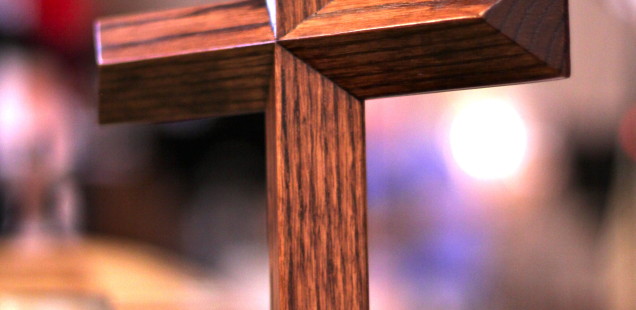
Ash Wednesday
Momento mori. This ancient Latin phrase means, “Remember (you have to) die.” It sounds very similar to the statement said to worshippers on Ash Wednesday as the pastor or priest smudges ashes on their forehead in the shape of the cross: “Remember that you are dust and to dust you shall return.” Momento mori.
These two statements raise many questions: “Why do we have to die? What’s the good of remembering it? Why set aside a day (Ash Wednesday) to remind us of it – a day that inaugurates an entire season (Lent) of remembering?” Ash Wednesday and Lent are intended to do more than just tangibly set our mortality before our eyes and upon our foreheads. They intend to inscribe the moral culpability for our mortality upon us. Why do we have to die? It’s not because of the world’s sin in general, but because of our sin in particular. Our mortality is our own doing.
This sounds depressing – ashes smudged on your face to remind you of your death, for which you are to blame… that is depressing. But that’s not what Christians do on Ash Wednesday. We have ashes smudged on our foreheads in the shape of a cross. The cross makes everything different. The cross transforms Ash Wednesday from depressing to sobering and Lent from a lament of our death to a preparation for our resurrection.
Ash Wednesday and Lent are honest, intentional, and practical. During Lent Christians commit to temporarily setting aside commonplace things, like alcohol, food or certain foods, or an activity in order to take their Ash Wednesday cross upon themselves. Jesus said, “Whoever would come after me, let him take up his cross daily and follow me.” Our individual crosses will take many different forms. For some their ashen cross is financial – they take upon themselves an increased responsibility of giving money to those in need. For others their ashen cross is physical – they take upon themselves the burden of hunger during mealtime or during a day, in order to teach themselves “to hunger and thirst for righteousness.” Fasting also teaches thankfulness for all of God’s gifts, including daily food and water in one’s belly, but ultimately Jesus’ flesh and the presence of the Holy Spirit in one’s soul.
Others’ crosses are reformative – people have vices, deeply ingrained moral and spiritual practices (like pornography, gossip, gluttony, inordinate spending, substance abuse, verbal abuse, over exercising), that need to be converted into virtues – different deeply-ingrained moral and spiritual practices which beautify instead of deform. These Christians, in the strength of God’s presence and with the help of a few Christian friends, intentionally work to re-carve the pathways of their heart by performing certain spiritual practices – daily meditation on God’s word, morning and evening prayer, or weekly service with a ministry to those in need, like a homeless shelter. These are just a few of the types of practices Christians throughout the centuries have taken upon themselves during Lent so that all of their days and time might be transformed into a continual celebration of the resurrection life we share in with Jesus.
Momento mori. It is important to remember that we must die, because in reflecting upon the inevitability of our physical deaths we train our hearts to treasure the rescue from spiritual death available in Christ. And paradoxically we are given an unshakeable reason to hope in a world where reminders of death are everywhere. That reason to hope is the cross on our foreheads – black with our dust, but marked in the form of Christ’s cross. He has taken our mortality and been raised from our ashes, so that we might share in his immortality, as well as his joyful obedience to God and selfless service to others in our lives now.
New life begins this Wednesday with ashes in worship. Please join us.
All Saints will have one Ash Wednesday service on Wednesday, February 18 at 6:00 PM at Park Hills Church. Childcare provided for ages 3 and under.